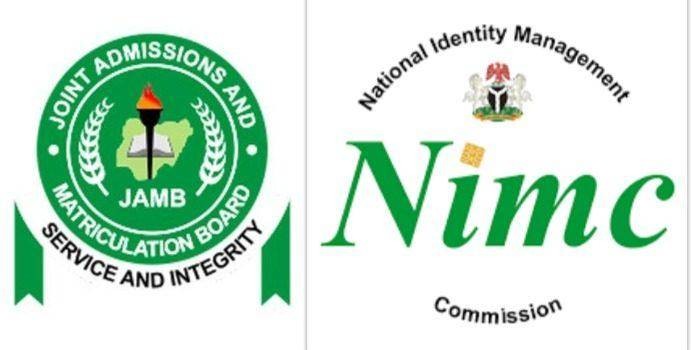
The current official Islamic Studies (IRS) JAMB Syllabus for UTME candidates is now available. The JAMB syllabus contains all the topics UTME candidates writing the JAMB CBT exam are expected to cover before the examination to ensure they are adequately prepared for the examination.
If you have been looking to get the JAMB Syllabus online, look no further. We understand that JAMB usually provide this syllabus for candidates in a CD. However, we have discovered that many candidates are unable to access to access this due to one reason or the other.
We have therefore decided to make it easier for you by making it available online so you can view it using any device that can access internet including your mobile phones.
Here we have provided you the detailed, complete and current JAMB Syllabus for Islamic Studies (IRS). To view the JAMB Syllabus for all subjects, go to: Official JAMB Syllabus For All Subjects
Current JAMB Syllabus – Islamic Studies (IRS)
The aim of this 2016/2017 Unified Tertiary Matriculation Examination (UTME) syllabus in Islamic Studies (IRS) is to prepare the candidates for the Board’s examination. It is designed to test their achievement of the course objectives, which are to:
1. master the Qur’an and Sunnah as foundations of Islamic and social life;
2. be familiar with Islamic heritage, culture and civilization;
3. be acquainted with the tradition of Islamic scholarship and intellectual discourse;
4. demonstrate knowledge of Islamic moral, spiritual, political and social values;
5. be prepared to face the challenges of life as good practicing Muslims.
Current JAMB Syllabus – Islamic Studies (IRS): DETAILED SYLLABUS/CONTENTS
PART 1: THE QUR’AN AND HADITH
| TOPICS/CONTENTS/NOTES | OBJECTIVES |
|
|
|
1. Revelation of the Glorious Qur’an(i) Visits of the Prophet (SAW) to Cave | Candidates should be able to: (i) analyse the Prophet’s (SAW) visits |
1b. Preservation of the Glorious Qur’an(i) Complete arrangement | i) identify the personalities involved in the |
1c. Importance of the Glorious Qur’anas a source of guidance in spiritual, | (i) examine the importance of the Glorious Qur’an |
1d. Proof of the Divine authenticity of the Glorious Qur’an (Q.4:82) (Q.41:42)(i) Uniqueness of the Glorious | (i) evaluate the proof of the divine authenticity of the Glorious Qur’an; (i) evaluate the uniqueness of the Glorious Qur’an; (ii) examine the ways by which the Glorious Qur’an was preserved. |
2. Tafsir(i) Historical development of Tafsir | Candidates should be able to: (i) trace the origin and sources of Tafsir; (ii) evaluate the importance of Tafsir (iii) compare the types of Tafsir. |
3. Introduction to Tajwid (Theory and Practice | Candidates should be able to: (i) examine the meaning and importance of Tajwid |
4. Study of the Arabic text of the following suwar/ayats with tajwid(a) al-Fatihah (Q.1) | Candidates should be able to: (i) recite with correct tajwid the Arabic texts of the suwar; (ii) translate the verses; (iii) deduce lessons from them; (iv) evaluate the teachings of the verses. |
5. Study of the Arabic text of the following suwar/ayats with tajwid(a) al-A’ala (Q.87) | Candidates should be able to: (i) recite with correct tajwid the Arabic texts of the suwar; (ii) deduce lessons from them; (iii) evaluate their teachings; |
6. Hadith(a) History of Hadith literature – | Candidates should be able to: (i) evaluate the history of Hadith from the time of the Prophet (SAW) to the period of six authentic collectors. (ii) analyse the Isnad; (iii) analyse the Matn; (iv) distinguish between Hadith Sahih, Hassan and da’if.Candidates should be able to: (i) examine the importance of Hadith; (ii) distinguish between Hadith and the Glorious Qur’an. (i) evaluate their biographies and works (i) evaluate his biography; (ii) analyse his work. (i) interpret the ahadith in Arabic (ii) apply them in their daily lives. |
7. Moral lessons in the Glorious Qur’an and Hadith(a) General moral lessons contained in the admonition of Sage Luqman to his son (Q.31:18-20). | Candidates should be able to: (i) use the teachings of the verses in their daily lives; (i) apply the teachings of the verses to their daily lives; (i) demonstrate the teachings of the verses in their daily lives. (i) use the teachings of the verses in their daily lives(i) apply the teachings of the verses in their daily lives. (i) demonstrate the teachings of the verses in their daily lives. (i) apply the teachings of the verses in their daily lives. (i) apply the teachings of the verses and the al-Hadith to their daily lives. (i) demonstrate the teachings of the verses and the Hadith in their daily lives. (i) apply the teachings of the verses and the ahadith in their daily lives. (i) Interpret the teachings of the verses and the Hadith in their daily lives. (i) demonstrate the teachings of the verses and the Hadith in their daily lives. (i) apply the teachings of the verses and the ahadith in their daily lives. |
8. PART II: TAWHID AND FIQH(a) Faith | Candidates should be able to: (i) analyse the concepts of Tawhid (i) evaluate the significance of kalimatush-shahadah; (ii) identify the verses dealing with the Oneness of Allah; (i) determine the significance of the servanthood of the Prophet Muhammad (SAW); (i) evaluate the significance of the universality of Prophet Muhammad’s message; (i) examine the significance of the finality of the Prophethood of Muhammad (SAW)Candidates should be able to: (i) determine what actions and beliefs constitute shirk; (ii) Determine the implications beliefs and actions of shirk; (iii) avoid such actions.Candidates should be able to: (i) identify those practices that are incompatible with the Islamic principles of Tawhid; (ii) determine those practice that are incompatible with Tawhid; (iii) shun off those actions; (iv) demonstrate the teachings of the verses and the ahadith in their daily lives. |
9. Article of faith(a) Belief in Allah | Candidates should be able to: |
10. Ibadat and their types(a) Good deeds (Q.3:134) (Q.6:160) (Q.2:177) (Q.31:8) (Q.103:1-3) 26th Hadith of an-Nawawi | Candidates should be able to: |
11. Family Matters(a) Marriage | Candidates should be able to: (i) analyse the importance of marriage; (i) determine the category of women prohibited to a man to marry; (i) examine the conditions for validity of marriage; (i) determine the rights and duties of the spouse; (i) evaluate polygamy and its significance. (i) examine the ill-treatment of wife in marriage(i) analyse the attitude of Islam to divorce(i) examine the different types of divorce; (ii) differentiate between the various kinds of iddah; (i) analyse its duration and significance; (i) determine the prohibited forms of ending marriage; (i) determine who has the right to custody of children; (i) evaluate the significance of inheritance; (i) identify the categories of the Qur’anic heirs; (ii) determine the share of each heir; |
12. Sources and Schools of Law(i) The four major sources (the Qur’an, Sunnah, Ijma and Qiyas) | Candidates should be able to: (i) analyse the four major sources of Islamic law; (ii) examine the biography of the sunni schools of law; (iii) examine their contributions. |
13. Islamic Economic System(i) Islamic attitude to Riba (Q.2:275-280) (Q.3:130) (Q.4:161) Hadith 6th of an-Nawawi | Candidates should be able to: (i) analyse Islamic attitude to Riba; (i) relate at-tatfif and its negative consequences; (i) examine ihtikar and its implications on society;(i) identify the sources of revenue in Islam; (ii) evaluate the disbursement of the revenue; (i) determine the uses of baitul-mal in the Ummah; (i) differentiate between the Islamic and Western economic systems.Candidates should be able to: (i) analyse the concept of Allah’s sovereignity; (ii) examine the concept of shurah in Islam(iii) evaluate the concept of justice and accountability (iv) examine the rights of non-Muslims in an Islamic state |
PART III: ISLAMIC HISTORY AND CIVILIZATION 15. Pre-Islamic Arabia (Jahiliyyah)(i) Jahiliyyah practices: idol worship, infancticide, polyandry, gambling, usury, etc. | Candidates should be able to: (i) distinguish the different types of practices common to the Arabs of al-Jahiliyyah; (ii) trace the reforms brought about by Islam to the Jahiliyyah practices |
16. The Life of Prophet Muhammad (SAW)(i) His birth and early life | Candidates should be able to: (i) account for the birth and early life of the Prophet Muhammad (SAW); (ii) provide evidence for the call of Muhammad (SAW) of Prophethood;(iii) analyse the Da’awah activities of the Prophet Muhammad (SAW) to Madinah (i) account for the Hijrah of the Prophet Muhammad (SAW) in Makkah and Madinah. (i) analyse the administration of the Muslim Ummah in Madinah. (i) account for the causes and effects of the Battles of Badr, Uhud and Khandaq; (i) trace the circumstances leading to the formulation of the Treaty of Hudaibiyya; (ii) account for the Conquest of Makkah; (i) examine for the farewell pilgrimage and its lessons; (i) analyse the qualities of Muhammad (SAW) their relevance to the life of a Muslim. |
17. The Rightly Guided Caliphs (al-Khulafa’u rashidun)– the lives and contributions of the four Rightly Guided Caliphs | Candidates should be able to: (i) trace the biographies of the four Rightly Guided Caliphs; (ii) evaluate their contributions to the development of Islam. |
18. Early contact of Islam with Africa(i) Hijrah to Abyssinia | Candidates should be able to: (i) evaluate their circumstances leading to the Hijrah to Abyssinia; (i) give reasons for the spread of Islamic in Egypt; (i) account for the roles of traders, teachers, preachers, Murabitun, Sufi orders and Mujaddidun in the spread of Islam in West Africa. |
19. The Impact of Islam in West Africa(i) The influence of Islam on the socio-political life of some West African Empires: Ghana, Mali, Songhai and Borno | Candidates should be able to: (i) analyse the influence of Islam on the socio-political system of some West African States; (i) evaluate the impact of Islam on the economic life of Timbuktu, Kano and Borno. |
20. Contributions of Islam to Education(i) The aims and objectives of Islamic Education | Candidates should be able to: (i) classify the aims and objectives of Islamic Education; (i) assess the position of the Glorious Qur’an and Hadith in education; (ii) examine the importance of seeking knowledge in Islam;(i) analyse the intellectual activities of Islam in West Africa. (i) assess the contributions of Sheikh al-Maghili, sheikh Uthman Dan Fodio, Sultan Muhammad Bello and Ibn Battuta; (i) account for the development of intellectual centres in Baghdad and Cairo; (i) examine the contributions of Ibn Sina to the development of Medicine; (ii) asses al-Ghazali’s contribution to Islamic education; (iii) analyse Ibn Rushd’s contribution to philosophy and fiqh; (iv) assess ar-Razi’s contribution to philosophy; (v) analyse Ibn Khaldun’s contribution to modern sociology and method of writing history. |
Current JAMB Syllabus – Islamic Studies (IRS): RECOMMENDED TEXT BOOKS
Abdul, M.O.A. (1976) Studies in Islam Series Book 3, Lagos: IPB
Abdul, M.O.A. (1982) Studies in Islam Series Book 2, Lagos: IPB
Abdul, M.O.A. (1988)The Classical Caliphate, Lagos: IPB
Abdulrahman and Canham (n.d) The Ink of the Scholar, OUP
Ali, A.Y. (1975) The Holy Qur’an Text: Translation and Commentary Leicester: The Islamic Foundation
Ali, M.M. (Undated) The Religion of Islam, Lahore
Doi, A. R. I (1997) Shariah: The Islamic Law; Kuala Lumpur: Noordeen
Hay Lal, M. (1982) The Life of Muhammad (SAW), Academic Press
Lemu, A. (1992) Methodology of Primary Islamic Studies, Lagos: IPB
Lemu, A. (1993) Islamic Studies for SSS Book 1, Lagos: IPB
Lemu, A. (1993) Islamic Studies for SSS Books, Minna: IET
Muhammad, S. Q. (2010) al-Burhanu fi tajwidil Qur’an Cairo: Shirkatul-Qudus
Opeloye, M.O. (1996) A Dictionary of Peoples and Places in the Qur’an, Lagos: Academic Press
Philips, A. A. B. (1997) Usool at-Tafseer, Kuala Lumpur: Noordeen
Quadri, Y.A. et al (1990) Al-Iziyyah for the English Audience, Ijebu Ode: Shebiotiom Publication
Rahim, A. (1992) Islamic History, Lagos: IPB
Sambo, M.B. et. Al (1984) Islamic Religious Knowledge for WASC Book 1, Lagos: IPB
Sambo, M.B. et. Al (1984) Islamic Religious Knowledge for WASC Book 3, Lagos: IPB
Trimingham, J.S. (1993) A History of Islam in West Africa, Oxford, OUP



